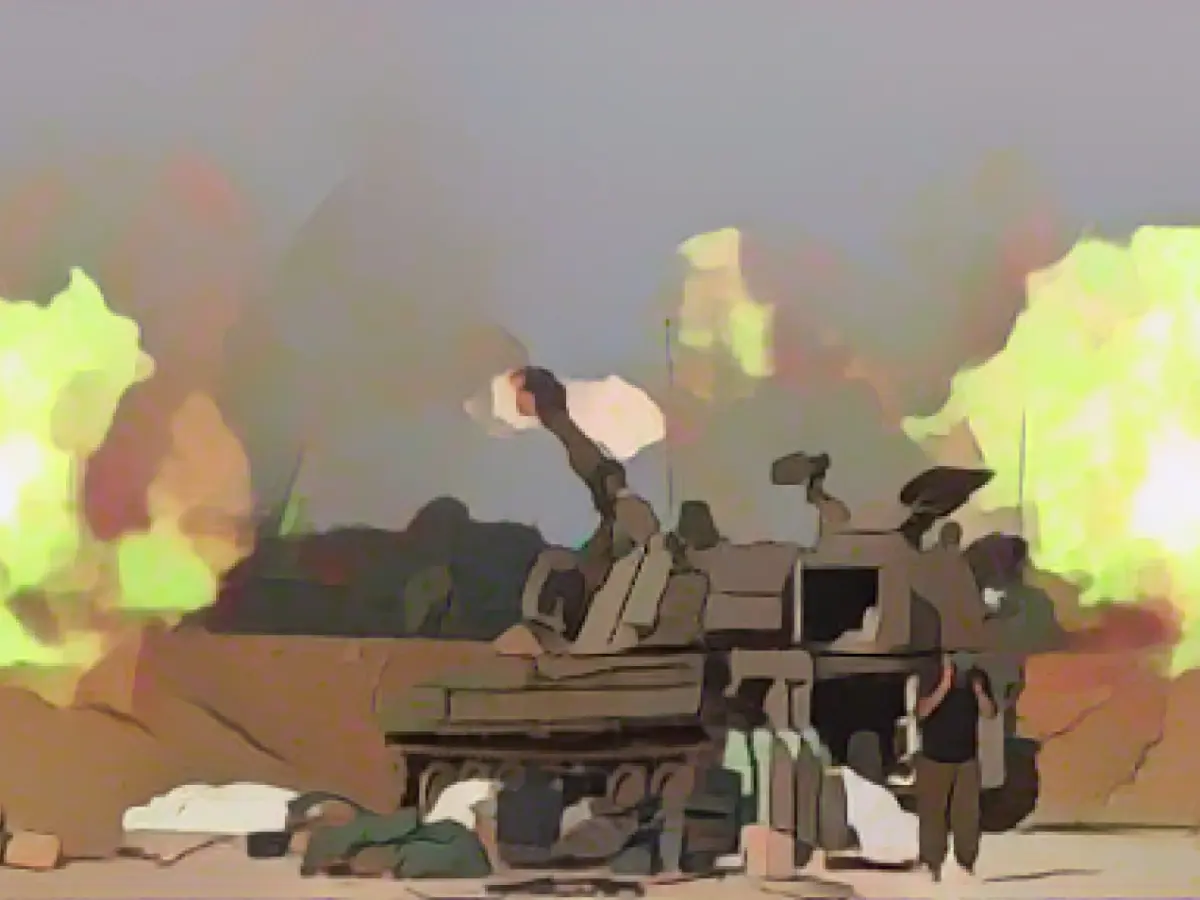Israeli army continues "extensive fighting" in Gaza Strip
The Israeli armed forces had killed "numerous" fighters in the city of Chan Junis, the army added. This was part of the "extensive fighting" in the Gaza Strip, where around 450 targets were attacked within 24 hours. Footage released by the Israeli army showed naval units firing on Hamas infrastructure from the Mediterranean.
Other army videos showed attacks on targets in Chan Junis in the southern Gaza Strip. The army called on residents of the Gaza districts of Jabaliya, Shejaiya and Zeitun to move further west.
In the north of the Gaza Strip, the army also reportedly came across another Hamas weapons cache. In addition to rocket parts, launchers and other weapons, a kilometer-long tunnel was discovered at Al-Azhar University in the Rimal district of Gaza.
According to Israeli reports, 91 Israeli soldiers have been killed in the Gaza Strip so far.
For its part, Hamas, which rules the Gaza Strip, declared that it was fighting Israeli troops "on all axes". On Friday, the Islamist-controlled Ministry of Health reported a further 40 deaths in fighting near the city of Gaza and dozens more in Jabaliya and Khan Yunis. Meanwhile, Hamas' armed wing, the Essedine al-Qassam Brigades, said it had fired more rockets into Israeli territory.
In view of further Hamas attacks on Israel, Foreign Minister Baerbock rejected the call for a general ceasefire. An "emotionally obvious demand such as that for a general ceasefire" is "de facto meaningless because it provides no answer as to how Hamas' terror can be stopped, how Hamas can lay down its weapons, how Israel can be safe again", said the Green politician at the World Climate Conference (COP28) in Dubai.
At the same time, things cannot continue as they are at present, Baerbock qualified. "We expect Israel to adapt its military approach in order to alleviate civilian suffering, to allow more humanitarian aid, especially to the north, to take more targeted military action and to accept fewer civilian casualties," Baerbock continued. The German government is coordinating closely with the Arab states, which are involved in humanitarian aid and as mediators.
The war between Israel and Hamas was triggered by a brutal Hamas attack on October 7. On that day, hundreds of fighters from the Palestinian organization, which is classified as a terrorist organization by the USA and the EU, invaded Israel and committed atrocities, mainly against civilians.
According to Israeli reports, around 1,200 people were killed and around 240 people were taken hostage. Hamas continues to hold 138 hostages, including women and children.
In response, Israel began massive attacks on targets in the Gaza Strip. According to Hamas figures, which cannot be independently verified, at least 17,177 people have been killed in the Palestinian territory since the start of the war, most of them women and children.
Read also:
- This will change in December
- German activists speak out in Dubai on suffering in Israel and the Gaza Strip
- Nuclear fusion - hype or solution to energy problems?
- Budget crisis fuels debate on citizen's income - Bas warns against populism
- The Israeli Army announced that they would avoid targeting residential areas in Jabaliya, urging civilians to move "away from" potential ground offensive sites.
- Annalena Baerbock, the German Foreign Minister, stated that she was against a general ceasefire due to its inability to stop Hamas' "fights" against Israel.
- Hamas reported additional casualties in Jabaliya and Khan Yunis, adding to the "extended fights" in the Gaza Strip.
- Israel's military, in response to Hamas' attacks, launched "extensive fighting" towards Hamas targets throughout the Gaza Strip, including in Jabaliya.
- Israeli naval units, stationed in the Mediterranean Sea, targeted Hamas infrastructure in Gaza, contributing to the ongoing conflict in the region.
- The Israeli Army continued its "fight" against Hamas, attacking around 450 targets in Gaza within 24 hours, which included a weapons cache discovered in the north of the Gaza Strip.
- The army's video footage showed the attacks on Hamas targets in Jabaliya, a densely populated district in the Gaza Strip, which raised concerns over potential civilian casualties.
- Amidst the ongoing conflict, the Israeli government and the international community continued to discuss a path forward, seeking ways to alleviate suffering in the Gaza Strip while ensuring Israel's security.
Source: www.stern.de







